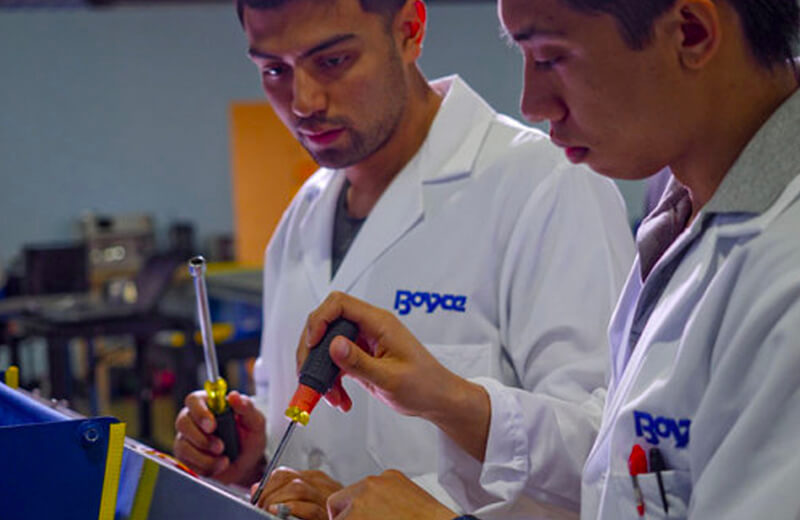Building an Optimal Advisory Team in 2020
Part of the “new normal” in the COVID era is gathering resources for your nonprofit or small business—and this means trusted advisors and experts in real estate and in economic and community development. Talk to the right people for the challenges ahead. And, you’ll ask the right questions about your organization’s operations and balance sheets.
Economic Development Considerations
Ideally, your advisory team includes financial advisors, real estate consultants, philanthropic advisors, and a CPA team that knows your organization inside and out. But, be sure to also consult with community and economic development strategists, who will provide insight into the actions of city and state government and lobbyists.
Just like you, agencies are feeling the pressure to preserve liquidity. Anticipate up to 20% cuts in government funding sources in the coming months.
Ideally, you want financing options and not a singular funding solution. This advice is as relevant for public financing and incentives as for commercial banking transactions. The WBE/DBE/SBE certified urban strategy consultancy Karp Strategies writes about leveraging the full “analysis of data, people, and place” available to you. Always, but especially in these uncertain times, consult with a varied community of experts who can provide you with information about the multiple factors impacting current markets and best practices.
Questions to Ask Your Advisory Team
Ask questions applicable to the specific and immediate needs of your organization.
- What funding sources are currently available?
- How do I access government financing programs?
- How do I talk to existing bank lenders about deferments, additional loan requests, or modifications?
- What real estate strategies should I use with my landlord (or tenants)?
Decision-making for long-term financial viability requires a different set of questions.
- How do I handle real estate assets currently on my balance sheets?
- How will changes to city and state capital budgets impact programs important to my organization?
- How will we pay for anticipated expenses and future programming?
- How can I restructure our balance sheets to increase organizational efficiencies?
- Are “angel” investors and philanthropical sources the answer to uncertain economic times?
- What strategies should I be deploying to keep our community and clients feeling engaged and relevant?
How to Explore Multiple Financing Opportunities
Most companies negatively impacted by the COVID pandemic are seeking both short and long-term financing solutions to cope with the crisis. You need to be able to act now in the interest of your organization but planning for future fiscal health and growth is also a given.
You may be asking questions like the following.
- Should I take advantage of current low-interest rates to refinance and reduce my expenses?
- Have I explored all of the subsidized government funding programs applicable to my situation?
- Exactly which financing options make the most sense right now?
- Is this the opportune moment to act?
In response to questions like these from our clients, ThinkForward has been exploring the advantages and disadvantages of several financing strategies.
- Debt and payment restructurings
- New or replacement lines of credit
- SBA PPP and EIDL loans
- Assistance with PPP loan forgiveness
- SBA 504 Refinance Program
- CDFI loans and grants*
- New tax-exempt bond issue
- Restructuring of existing tax-exempt bonds
- Sale-leaseback of property
*CDFI loans and grants are available through the Nonprofit Finance Fund, LISC, Low Income Investment Fund (LIIF), Blue Hub Capital, TruFund Financial, Pursuit Lending, and similar organizations.
Liquidity Management for NYC Nonprofits and SBEs
We are currently working with multiple New York City organizations now benefiting from various financing strategies. The breadth of industries represented and communities served speaks to the diversity that exists right now for funding solutions. If ThinkForward can assist you with a financing initiative or if you have general questions, please contact us.
NONPROFITS
- Private school—$30M bond refinancing and new money transaction
- Advocacy and research group—$8.5M bond refinancing to reduce interest costs
- Worker education group—new office condo acquired with $10M tax-exempt bonds
- Special-needs children school—$20M to expand existing facilities
- Jewish kosher certification organization—$55M tax-exempt bond financing for new office space
- Public access TV programming—$20M tax-exempt bond financing for a new studio and office headquarters
- Religious organization—$10.0M new credit line and refinancing of existing real estate loans
- Social service agency—$25M to refinance existing debt refinancing
INDUSTRIALS
- Long Island City, Queens-based manufacturing company—$8M bank loan for the acquisition of new manufacturing facility
- Food manufacturing company—debt refinancing through $7.2M bank and SBA loans
- Mixed-use development—existing industrial asset repositioning with IDA tax incentives for $54M
- Mixed-use development—new development with Charter School as an anchor tenant with IDA tax incentives for $70M
- Packing manufacturer—PPP and EIDL loans
- A/C compressor remanufacturer—PPP and EIDL loans
- TV/film production facility—$50M refinancing and construction loan







